Syria conflict: The anti-Isis coalition - put together by Washington - is rapidly fraying
Diplomatic Channels: Saudi Arabia and other Gulf states are now hardly taking any part in the military operations, their efforts focusing on Yemen, while the vast majority of Turkish air strikes continue to be directed at the Kurdish PKK

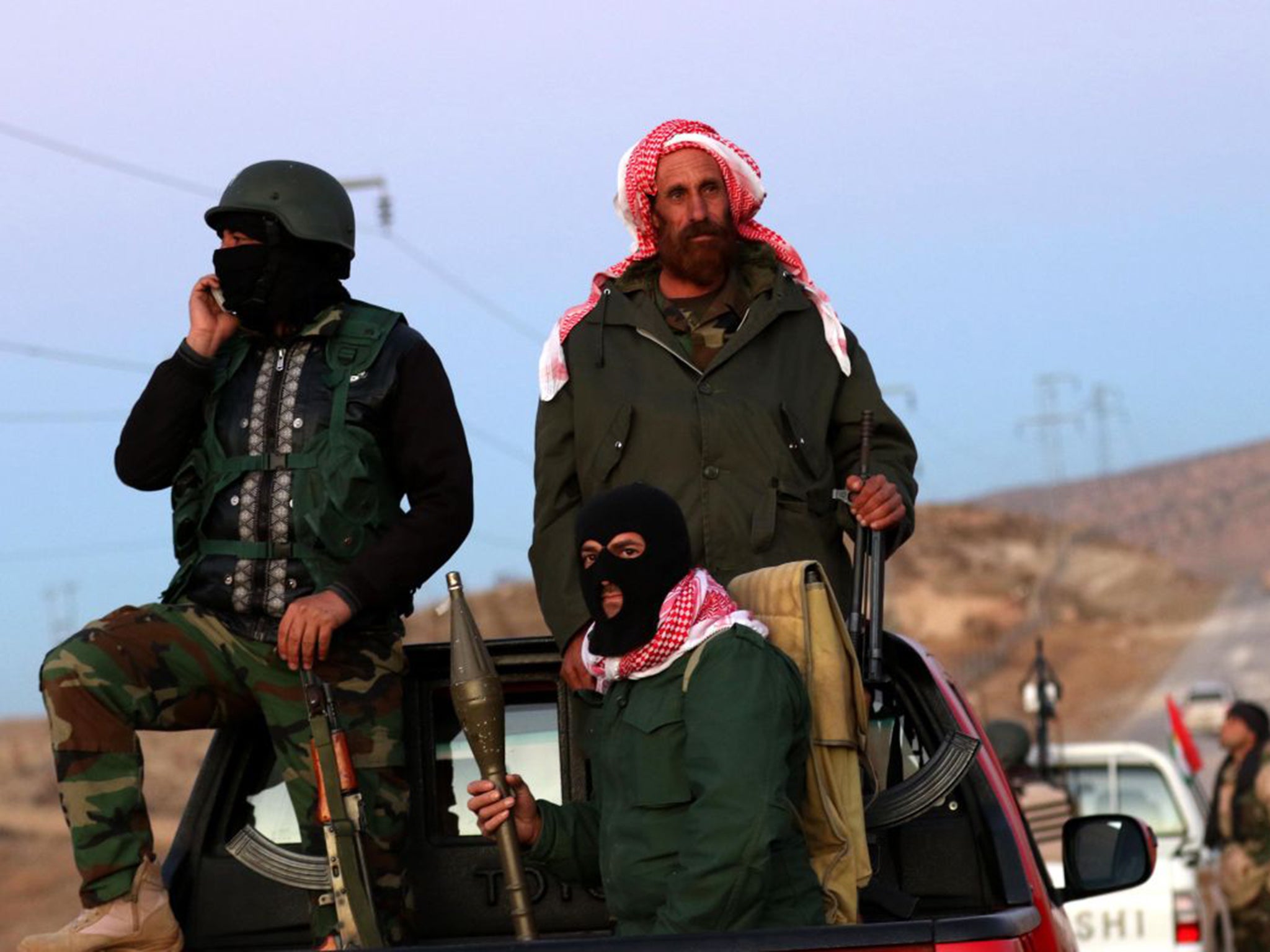
The United States and its allies have repeatedly accused Russia of targeting “moderate” rebels under the guise of attacking Isis in its Syrian air campaign. This is part of a Kremlin plot, it is claimed, aimed at destroying legitimate opposition to Bashar al-Assad.
What is not widely known is that Russian requests to the Americans to provide details of these Western-backed groups, so that they are not caught up in air strikes, have been rejected by Washington on the grounds that this will be used instead by the Kremlin to bomb these groups.
Giving out the information makes sense, American officials acknowledge privately. If nothing else, they say, it will make it far harder for the Russians to justify hitting the “moderates”. But who, actually, is providing the co-ordinates for bombing now? The Russians have “let slip” that it is, in fact, rebel groups taking out rivals. This may not be true, a bit of mischief making, but it has helped to sow suspicion and distrust among an already divided opposition.
The real reason for the Americans withholding the information about the rebels from the Russians is that the Obama administration is wary of accusation from Sunni Arab states, part of the anti-Isis coalition, that it is helping Moscow.
Such is the level of concern over this that the US Defence Secretary, Ashton Carter, has stopped his officials from using the term “deconfliction” in describing talks being held by American and Russian military to prevent accidental clashes in Syria, in case that smacked of collusion. The correct terminology, he has decreed, is that it is “basic technical discussions on safety procedures of our pilots over Syria”.
But in reality, the coalition, put together by Washington in an attempt to show that air strikes in Iraq and Syria are not just a Western venture, is rapidly fraying. Saudi Arabia and other Gulf states are now hardly taking any part in the military operations, their efforts focusing on Yemen, where they are finding the going tough against the Iranian-backed Houthi rebels. The vast majority of Turkish air strikes, meanwhile, continue to be directed at the Kurdish PKK rather than Isis.
One member state in the coalition, however, is taking a different path. Jordan is actively liaising with the Russians, giving them the co-ordinates of the opposition forces Amman are supporting in the Deraa region. There has been only one air attack of any significance near Deraa since the information sharing system was put in place almost three weeks ago. Rebels under the umbrella group of the Free Syrian Army (FSA) who received American TOW missiles operating in the area claimed they were the victims. The Russians insist that they had concentrated their fire on the positions of the al-Qaeda affiliated Jabhat al-Nusra.
Jordan is the only coalition member to have suffered a military fatality during the anti-Isis air attacks, the barbaric burning alive of the pilot Muath al-Kasaesbeh. King Abdullah, one of the West’s closest allies in the Middle East, has spoken about Russia’s role in combating terrorism in Syria. “If the Europeans are dealing with a major concern about foreign fighters, that is doubly so for Russia. They have a major problem with foreign fighters also, so they need to deal with the threat of Isis themselves”, he stressed.
Russia has a major problem with foreign fighters also, so they need to deal with the threat of Isis themselves
The king went on to add that Russia’s involvement in Syria was imperative in bringing the bloodshed to the end: “for a political solution in Syria, Moscow is the key. They are the ones who can give the guarantees to the regime that they have a stake in the future.”
Jordan is set to play an increasingly valuable role for the US on Syria. A Pentagon scheme to train an opposition force of 5,000 proved to be a disaster with fewer than 60 fighters produced at the end. Others from a similar course run by the CIA promptly handed over their weapons to al-Nusra after crossing over from Turkey. A new programme, based in Jordan, is now being unveiled, with better vetting of recruits who would be sent across the border into southern Syria.
Meanwhile, talks attempting at a political settlement to end the bloodshed are due to restart in Vienna at the end of the week. But there is little expectation of quick progress. A draft Russian plan involving alteration of the Syrian constitution with elections to be held in 18 months time has been rejected by opposition groups because it does not include the removal of President Assad.
Russian diplomats maintain there is still room for negotiations with the opposition and have provided a list of those who they are prepared to do business with. It includes two former heads of the Syrian National Council (SNC), Ahmad Jarba, Ahmad Moaz al-Khatib and the current president, Khaled al-Khoja.
But just how much power and influence these men actually wield was called into question on Tuesday, 24 hours after the list was presented.
A SNC delegation, including Mr Khoja, were prevented from going into Syria, at a crossing at al-Bab near Aleppo, by rebels. The fighters belonged to Ahrar al-Sham, a hardline Islamist group favoured by the Saudis which has been fighting Isis as well as the regime. It is one of the very few groups doing so effectively.
But the problem is that many of its commanders regard the Western-backed SNC leadership, the people who want to replace President Assad at the helm of the country, with barely disguised contempt.

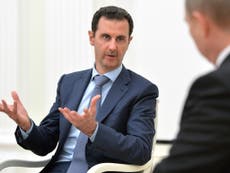
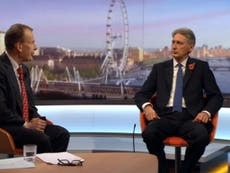
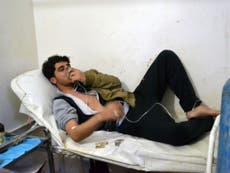
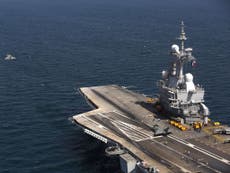
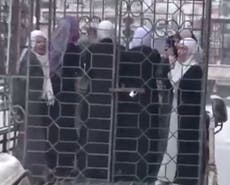
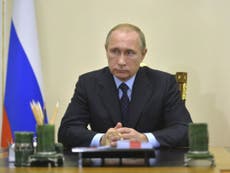
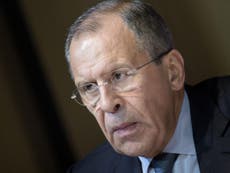
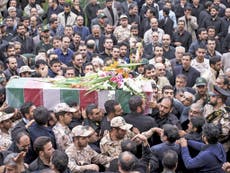
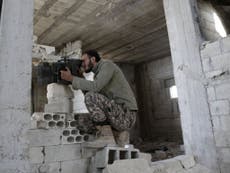
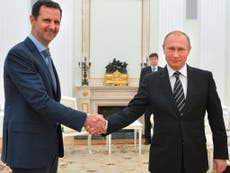
Join our commenting forum
Join thought-provoking conversations, follow other Independent readers and see their replies